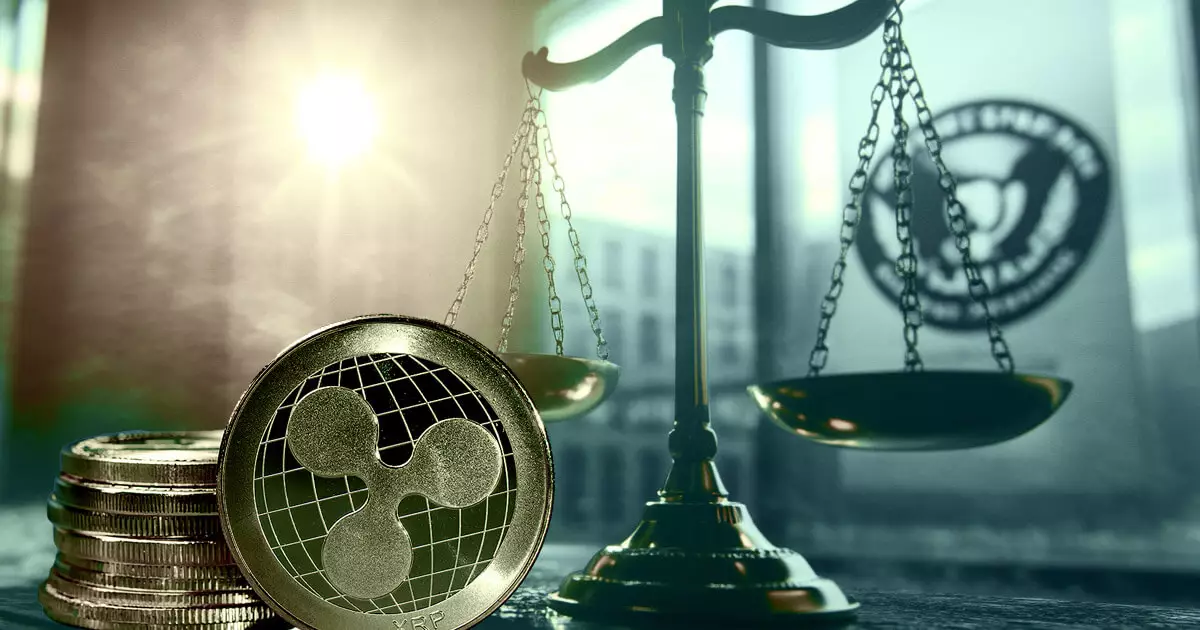The legal battle between Ripple Labs and the US Securities and Exchange Commission (SEC) continues to be a focal point for both the cryptocurrency market and regulatory discussions. As the situation unfolds, both parties are preparing for the next stages within their legal contest, particularly in light of the latest developments regarding the SEC’s pre-argument statement.
On October 17, the SEC made a significant move by filing a Civil Appeal Pre-argument statement in its ongoing case against Ripple. This filing is particularly notable as it comes shortly after Judge Analisa Torres delivered a ruling that was perceived as a partial victory for Ripple. Judge Torres concluded that Ripple’s sales of XRP to retail investors—those buying through digital asset exchanges—did not breach US securities laws. However, the court’s decision was mixed, as it found that XRP sales to institutional investors did violate these regulations.
What is critical to understand is that the SEC’s appeal does not contest the ruling concerning retail sales through exchanges. This suggests a strategic focus on the elements of the case that the SEC believes require further scrutiny. Instead, the SEC is challenging specific aspects, including Ripple’s programmatic sales of XRP on trading platforms and distributions to employees and other stakeholders. Such distinctions are vital, as they could alter the broader implications of the case for XRP and similar cryptocurrencies in the market.
Ripple Executives in the Crosshairs
In a noteworthy move, the SEC is not just targeting Ripple as a corporate entity but has also set its sights on Ripple’s executives, Brad Garlinghouse and Chris Larsen. The regulators claim that these individuals played a role in facilitating the sales of XRP on behalf of Ripple, thereby implicating them in the alleged violations of securities laws. This strategy by the SEC indicates a desire to hold individuals accountable as a means of reinforcing regulatory compliance within the cryptocurrency space.
In legal circles, this approach could determine how corporate leaders in the crypto industry navigate their roles and responsibilities moving forward. It also raises questions about the extent to which individual actions could lead to personal liability in burgeoning industries that often exist in gray areas of the law.
One of the key legal terminologies that emerged from the SEC’s filings is the request for a “de novo” review by the appellate court. This term implies that the court will reassess the legal questions pertaining to Ripple’s XRP sales without relying on the lower court’s findings. Such a review is significant because it could lead to different interpretations of the case and potentially set new precedents for how cryptocurrency transactions are categorized under US law.
This overarching reevaluation could prove disruptive—shaping the future landscape of digital currencies and the regulatory frameworks that govern them. Legal challenges like this often serve as a bellwether for the regulatory environment spanning the rapidly evolving tech landscape.
The SEC’s move has drawn considerable attention from the cryptocurrency community and industry observers alike. Many commentators are speculating about the implications of such an appeal, including the potential delays it may cause in reaching a final resolution. Ripple’s Chief Legal Officer, Stuart Alderoty, has attempted to quell fears by reiterating that the decision declaring XRP not a security remains intact and is not subject to appeal.
Alderoty’s statements emphasize a sense of optimism from Ripple’s perspective, as they indicate that significant portions of the court’s ruling are favorable. The anticipation of Ripple’s cross-appeal adds another layer to the proceedings, suggesting that the company is preparing for what promises to be a complex and protracted legal process.
As the case progresses, the ramifications extend beyond Ripple and the SEC; they mark a crucial juncture for the regulatory attentiveness toward digital assets in the United States. Investors, developers, and agencies will watch closely as the landscape of cryptocurrency regulation continues to unfold, anxiously awaiting the next steps in this landmark case that could shape future policies.



















Leave a Reply